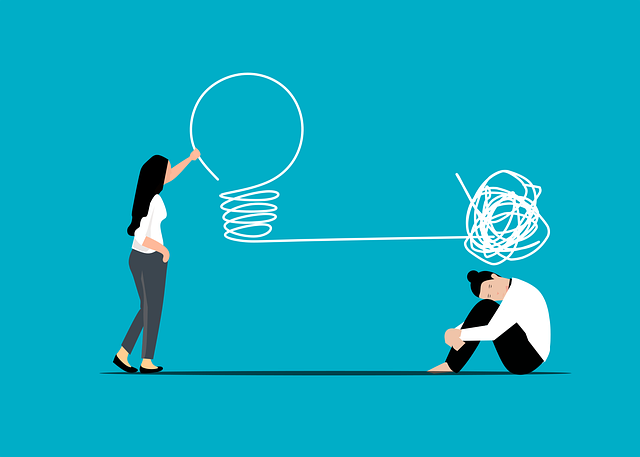Englewood Women's Issues Therapy utilizes mindfulness meditation as a transformative tool for mental well-being. By focusing on the present without judgment, individuals cultivate self-awareness and build effective self-care practices. Consistency in dedicated, quiet daily sessions enhances mental health, focus, reduces stress, and may prevent conditions like depression. Englewood offers resources including guided meditations and podcasts to support regular mindfulness practice for improved resilience and overall mental wellness.
“Unwind your mind and embrace a healthier mental space with mindfulness meditation—a powerful tool that has gained prominence in modern wellness. This article guides you through a transformative journey, offering insights into how mindfulness can address women’s issues, as seen through the lens of Englewood Womens Issues Therapy. From understanding its fundamentals to mastering techniques for stress relief, we explore practical steps for establishing a consistent practice. Prepare to unlock the benefits and discover how mindfulness can be seamlessly woven into your daily routine.”
- Understanding Mindfulness Meditation: A Foundation for Englewood Womens Issues Therapy
- Benefits of Regular Practice for Mental Wellbeing
- Setting Up a Successful Meditation Routine
- Common Challenges and How to Overcome Them
- Incorporating Mindfulness into Daily Life for Sustainable Change
Understanding Mindfulness Meditation: A Foundation for Englewood Womens Issues Therapy

Mindfulness meditation is a practice that has gained significant attention for its potential to transform mental health and overall well-being. At Englewood Women’s Issues Therapy, we recognize its profound impact as a foundation for our therapeutic approaches. This ancient technique involves focusing one’s awareness on the present moment, non-judgmentally, thereby cultivating a deeper understanding of oneself and one’s thoughts.
By integrating mindfulness into therapy sessions, we empower individuals to develop self-care practices that boost confidence and promote mental wellness. It becomes a tool for navigating life’s challenges with greater resilience and self-awareness. Through regular meditation practice, clients at Englewood Women’s Issues Therapy learn to observe their emotions without getting swept away by them, fostering a sense of calm and clarity that extends beyond the session.
Benefits of Regular Practice for Mental Wellbeing

Regular mindfulness meditation practice offers profound benefits for mental wellbeing, as backed by both scientific research and anecdotal evidence from individuals seeking support at Englewood Women’s Issues Therapy. By cultivating present-moment awareness, this ancient practice helps reduce stress, anxiety, and depression. It promotes emotional regulation, enabling individuals to navigate life’s challenges with greater resilience and clarity.
Incorporating mindfulness into daily routines through exercises like Mental Wellness Journaling or Self-Awareness Exercises, as suggested in Mental Health Education Programs design, can lead to lasting positive changes. Regular practice fosters a deeper connection with one’s thoughts and feelings, leading to improved decision-making, enhanced focus, and increased overall life satisfaction. This, in turn, contributes to a more balanced and fulfilling mental state, ultimately enriching the quality of life for practitioners.
Setting Up a Successful Meditation Routine

Starting a mindfulness meditation practice is an investment in your mental health and well-being. At Englewood Women’s Issues Therapy, we understand that establishing a successful routine can be transformative. Begin by carving out a dedicated space for meditation—a quiet area free from distractions where you can feel at ease. Consistency is key; aim to meditate at the same time each day to train your mind and body to anticipate this ritual. Consider incorporating subtle changes to signal to your mind that it’s time to focus, such as lighting a candle or playing soft, calming music.
To enhance your practice, explore various meditation techniques. Guided meditations are excellent for beginners, offering step-by-step instructions to help you stay on track. Over time, you may develop the skill to meditate mindfully on your own, observing your thoughts without judgment. Remember, mindfulness is a muscle that strengthens with regular exercise. Through consistent practice, you can improve focus, reduce stress, and even prevent conditions like depression, making it an invaluable tool in your mental health education programs design.
Common Challenges and How to Overcome Them

Many people find mindfulness meditation challenging at first, but with practice and patience, it becomes easier to overcome common obstacles. One significant hurdle is staying focused during sessions, especially in a noisy or busy environment. To combat this, try finding a quiet space where you can be undisturbed. Setting a timer also helps; when you know the session’s length, it becomes less daunting.
Another challenge might be maintaining consistency in your practice. Building resilience starts with small steps, so begin with shorter meditations and gradually increase their duration as your comfort level grows. Englewood Women’s Issues Therapy offers valuable resources for those seeking to enhance mental wellness through coping skills development. Regular meditation, combined with the support of a Mental Wellness Podcast Series Production, can significantly contribute to improving overall mental health and cultivating lasting resilience.
Incorporating Mindfulness into Daily Life for Sustainable Change

Incorporating mindfulness into daily life is key to achieving sustainable change in mental health, as advocated by professionals at Englewood Womens Issues Therapy. It’s not just about finding time for meditation; rather, it’s about cultivating a mindful awareness that permeates all aspects of your routine. Start with small, conscious actions like focusing on breath during mundane tasks or noticing sensory experiences without judgment. This practice strengthens the connection between mind and body, fostering inner strength development as outlined in Mental Health Policy Analysis and Advocacy.
As you integrate mindfulness, observe how it influences your reactions to stress and emotions. Over time, these simple practices can lead to profound shifts, helping you respond rather than react to challenges. The principles of Mind Over Matter become increasingly tangible, allowing for a deeper sense of control and resilience. Remember, consistency is crucial; like tending to a garden, regular mindfulness cultivation enables the growth of inner peace and well-being.
Mindfulness meditation, as explored through the lens of Englewood Womens Issues Therapy, offers a powerful tool for enhancing mental wellbeing. By understanding its fundamentals and adopting consistent practice, individuals can navigate life’s challenges with greater resilience. Overcoming common obstacles is achievable through tailored strategies, allowing mindfulness to become an integral part of daily routines. This transformative journey not only benefits the mind but also enriches overall quality of life, providing a lasting impact for those seeking holistic therapy solutions.













